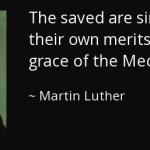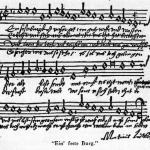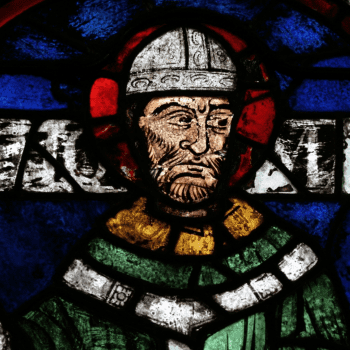The last of Martin Luther’s Five Solas, Soli Deo Gloria, puts into perspective the purpose of life for all Christians: to glorify and enjoy God forever. One’s vocation, or calling and purpose, is to glorify God– no matter their ethnic, religious, cultural, or socio-economic background. No distinctions exist within Christianity; no one Christian is above another.
This was another revolutionary concept Luther introduced– coming from an ordained priest and monk– who rallied against one of the Roman Catholic Church’s sacraments, the Holy Orders (becoming a bishop, priest, or deacon). Luther renounced his ordination and later married, arguing there was nothing biblical about the Holy Orders or a requirement of celibacy for ordination.
Neither bishops nor priests had the power to grant absolution, grace, or anything else. Nor could “the clergy” receive more grace or special favor from God than “the laity.” The divisive and non-biblical Roman Catholic doctrine that had categorized everyone other than bishops and priests as “less than” for centuries– was now declared null and void. One’s highest calling, Luther clarified, wasn’t to the church, but to God.
Therefore, whatever Christians do, Luther argued, should always be motivated by their desire to glorify God, citing the Apostle Paul:
“So whatever you eat or drink or whatever you do, do it all for the glory of God.” (1 Cor. 10:31)
Luther also argued that no distinction between secular or sacred vocations could exist. Every job could be done to the glory of God. He wrote:
“God is a butler who sets forth a feast for the sparrows and spends on them annually more than the total revenue of the king of France. Christ worked as a carpenter. ‘I can just imagine,’ said Luther from the pulpit, ‘the people of Nazareth at the judgment day. They will come up to the Master and say, ‘Lord, didn’t you build my house? How did you come to this honor?’ The Virgin Mary worked, and the most amazing example of her humility is that after she had received the astonishing news that she was to be the mother of the Redeemer, she did not vaunt herself but went back and milked the cows, scoured the kettles, and swept the house like any other housemaid. Peter worked as a fisherman and was proud of his skill, though not too proud to take a suggestion from the Master when he told him to cast on the other side.”
No matter one’s job, whether it be cleaning, care-taking, teaching, participating in athletic or music competitions, solving mathematic equations or building architectural feats, Christians do so primarily to glorify God. Christians can rejoice and give God the glory, no matter their vocation or circumstance– and no matter the outcome.
Stephen J. Nichols points out in The Reformation: How A Monk and a Mallet Changed the World, that,
“a German musician would subscribe to this teaching of Luther. So Johann Sebastian Bach would sign his pieces, both pieces commissioned for the church and his so-called secular works, JSB and SDG. JSB stands, of course, for his initials; SDG stands for Soli Deo Gloria. Luther and Bach, both significant figures from the pages of history, remind us that in our seemingly ordinary work and life we are doing something extraordinary.”
Because truth was found in scripture alone, and only Jesus could mediate between God and humanity, every Christian can have immediate access to God, personally serve God, and intercede for others. As the Apostle Paul admonished:
“You also, like living stones, are being built into a spiritual house to be a holy priesthood, offering spiritual sacrifices acceptable to God through Jesus Christ.
“But you are a chosen people, a royal priesthood, a holy nation, a people belonging to God, that you may declare the praises of Him who called you out of darkness into His wonderful light. (1 Pet. 2:5, 9)
“Let the word of Christ dwell in you richly as you teach and admonish one another with all wisdom, and as you sing psalms, hymns and spiritual songs with gratitude in your hearts to God. And whatever you do, whether in word or deed, do it all in the name of the Lord Jesus, giving thanks to God the Father through Him.” (Col. 3:16-17)
No Holy Order is necessary to serve God. And, with the emphasis on this sola, Luther reoriented the concept of the church to the definition of scripture. The body of believers wasn’t defined by what one could get from the church (absolution, forgiveness, mediation), but what one could give to fellow believers. Soli Deo Gloria reemphasized that the importance of one’s time, talent, and treasure– was how it glorified God.












